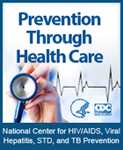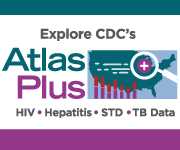HIV Transmission at Each Stage of Care
February 23, 2015 – First-ever estimates of transmission at each stage of HIV care reinforce the value of testing and treatment efforts.
Today in JAMA Internal Medicine, CDC researchers published the first U.S. estimates of the number of HIV transmissions from people engaged at five consecutive stages of care (including with those who are unaware of their infection, those who are retained in care and those who have their virus under control through treatment), finding more than 90 percent of new HIV infections could be averted by diagnosing people living with HIV and ensuring they receive prompt, ongoing care and treatment. The new analysis reinforces the importance of HIV testing and treatment for protecting the health of people living with HIV and preventing transmission to others.
For your stories about this new research, please find below a press release, as well as other useful background resources, including an animated infographic, which provides a quick visualization of the data.
Resources
- Press Release: 9 in 10 new US HIV infections come from people not receiving HIV care
- Full Article: JAMA Internal Medicine, Human Immunodeficiency Virus Transmission at Each Step of the Care Continuum in the United States
- Background Materials: Fact Sheets
Animated Infographic – HIV Testing and Treatment for Health and Prevention
How HIV Transmissions Decrease as People Go Through Care
In a first-of-its-kind analysis, CDC authors estimated the number of HIV transmissions in the U.S. attributable to people at five consecutive stages of HIV care (including with those who are unaware of their infection, those who are retained in care and those who have their virus under control through treatment). The animated infographic below uses these data to illustrate the critical role of HIV testing, care, and treatment for protecting the health of those with HIV and for preventing transmission to others.
Please note that this animated infographic is for media use/reprint. If you are a member of the general public and seek additional information about HIV, please visit www.cdc.gov/hiv. If you have additional questions, please call 1(800) CDC INFO or email cdcinfo@cdc.gov.
- Page last reviewed: February 23, 2015
- Page last updated: February 23, 2015
- Content source:


 ShareCompartir
ShareCompartir

